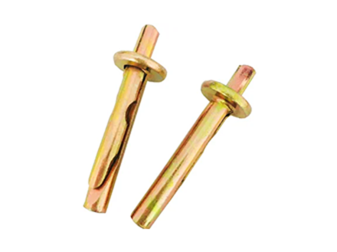নভে. . 04, 2024 11:21 Back to list
Understanding the Benefits and Applications of Swedged Anchor Bolts in Construction
Understanding Swedged Anchor Bolts A Key Component in Construction and Infrastructure
In the world of construction and civil engineering, the importance of reliable fastening systems cannot be overstated. Among these, swedged anchor bolts play a significant role in ensuring the stability of structures ranging from small buildings to large bridges. This article delves into what swedged anchor bolts are, their applications, advantages, and the factors to consider when using them.
What Are Swedged Anchor Bolts?
Swedged anchor bolts are heavy-duty fastening devices specifically designed to secure structures to concrete or masonry. Their unique design features an elongated shaft with a swedged (or tapered) end. This tapered design allows for a more secure and stable connection within the concrete compared to standard anchor bolts. Typically made from high-strength steel, these bolts can endure substantial loads, making them ideal for critical structural applications.
The swedging process involves deforming the steel in a controlled manner, enhancing its strength and ability to withstand shear and tension forces. As a result, swedged anchor bolts are particularly useful in environments where regular bolts might fail under extreme stress or load conditions.
Applications of Swedged Anchor Bolts
Swedged anchor bolts are employed in a variety of applications. One of their primary uses is in the anchoring of steel structures, such as communication towers, bridges, and industrial buildings. They are also commonly used in the anchoring of machinery and equipment, providing a stable foundation for heavy operational machinery.
In addition to commercial applications, swedged anchor bolts are frequently used in residential construction, particularly in the anchoring of decks and retaining walls. Their ability to secure structures firmly in place is crucial for maintaining safety standards in engineering and construction.
Advantages of Swedged Anchor Bolts
The advantages of using swedged anchor bolts over traditional anchoring systems are multifaceted
1. Enhanced Load Capacity Swedged anchor bolts have superior load-bearing capabilities due to their tapered design, allowing them to distribute weight more evenly within the concrete.
swedged anchor bolts

2. Superior Shear Strength The swedged end forms a mechanical interlock with the base material, providing significant resistance against shear forces.
3. Corrosion Resistance Many swedged anchor bolts are treated with protective coatings to resist corrosion, ensuring longevity in harsh environments.
4. Ease of Installation Swedged anchor bolts can be installed with ease, often requiring less time and fewer tools compared to other anchoring systems. This efficiency can lead to cost savings in labor and materials.
Factors to Consider When Using Swedged Anchor Bolts
While swedged anchor bolts offer numerous benefits, certain factors must be considered to maximize their effectiveness
1. Material Compatibility Ensure that the bolt material is compatible with the concrete or masonry to prevent corrosion or weakening over time.
2. Load Requirements It is crucial to accurately calculate the load requirements for the specific application to select the right size and design of the swedged anchor bolt.
3. Installation Techniques Proper installation techniques are essential for achieving optimal performance. This may involve specific drilling methods, torque specifications, and curing periods for the concrete.
4. Environmental Conditions Consider the environmental factors that may affect the performance of the bolts, such as temperature fluctuations and exposure to chemicals or moisture.
Conclusion
Swedged anchor bolts are a cornerstone in modern construction, providing reliable fastening solutions for a wide range of applications. Their unique design, enhanced load-bearing capacity, and ease of installation make them a preferred choice for engineers and builders alike. By understanding their properties and considerations for use, construction professionals can ensure the safety and durability of their projects, ultimately contributing to robust infrastructure development.


